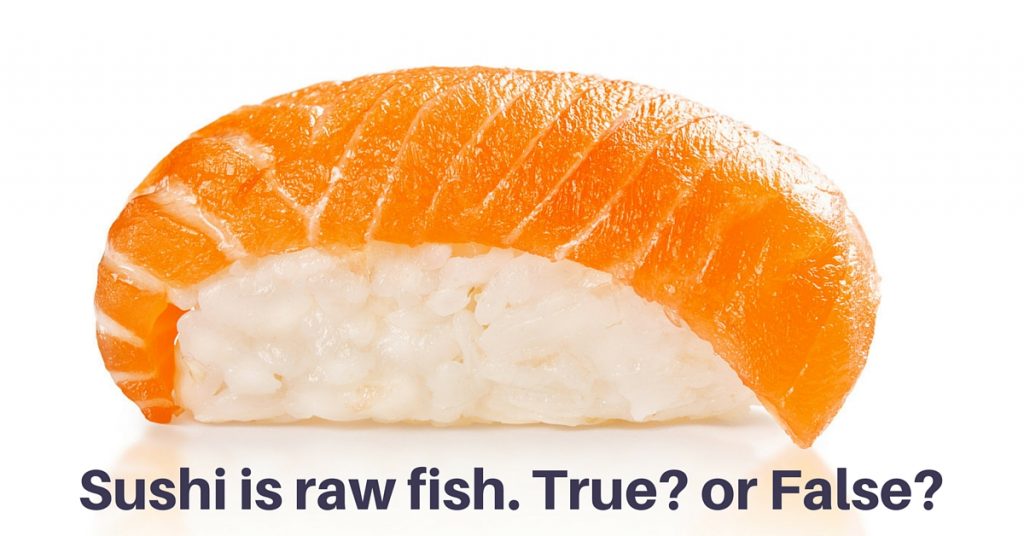“Common knowledge” is frequently wrong. Here are some examples of things that many people believe…but that, according to our sources, just aren’t true.
Sushi
Myth: Sushi is raw fish.
Fact: Technically, sushi isn’t fish at all. The name of this Japanese dish refers to the vinegared rice, which often is topped with raw seafood. But many other foods can top the sushi, too—vegetables, eggs, or cooked meat of any variety—and it will still be called sushi.
Robert Johnson’s Soul
Myth: Blues legend Robert Johnson sold his soul to the devil in exchange for superior guitar skills.
Fact: It was Tommy Johnson (no relation), one of Robert’s blues contemporaries, who made the claim—about himself: “If you want to learn how to play anything you want to play…you take your guitar and you go to where the road crosses that way…A big black man will walk up there and take your guitar, and he’ll tune it. And then he’ll play a piece and hand it back to you. That’s the way I learned to play.” Robert wrote a song about Tommy’s story called “Cross Road Blues.” After Robert died in 1937 (at the age of 27), the legend became attributed to him.
Beer Before Liquor
Myth: As the old saying goes: “Beer before liquor—never sicker. Liquor before beer—you’re in the clear.”
Fact: There is no scientific basis to this aphorism. Besides, it’s not the order in which you drink the alcoholic beverages that makes you sick; it’s the amount you drink.

Myth: Ninja warriors dressed all in black.
Fact: That’s how the ninja—assassins and spies who relied on stealth—were first depicted on stage in Japanese plays; the black costumes were merely a symbol of their invisibility. That same black-clad ninja image was then transferred to the movies. In reality, the ninja donned dark blue outfits at night to blend in with the color of the night sky. In the daytime, preferring to blend in with the crowd, ninja would wear anything from peasant rags to noble gowns, depending on their mission.
Six Degrees of Separation
Myth: Every human is connected to every other human by “six degrees of separation.”
Fact: The concept is based on a 1967 study by Yale psychologist Stanley Milgram. His subjects, found via newspaper ads in the Midwest, were asked to locate complete strangers by sending letters to their own friends, asking if they knew the stranger. If they didn’t, the friends were asked to send the letters along to their friends, and so on, until one of the initial letters reached the stranger. It took an average of six steps, or “six degrees,” leading to the pop-culture phrase. It turns out the research was flawed. A 2002 follow-up study by psychologist Judith Kleinfeld of the University of Alaska found that Milgram’s original subjects were “particularly sociable” and, in truth, only about 30% of the strangers were found. Not only that, the average degrees of separation was nine, not six. Kleinfeld’s conclusion: We don’t live in a “small world,” as Milgram suggested—it’s more like a “lumpy oatmeal” world, in which a very few people are well connected, but most are not.
Schizophrenia
Myth: People who are schizophrenic have multiple personalities.
Fact: Schizophrenia is a mental disorder that causes people to have delusions about reality or experience auditory hallucinations (hear voices). People who suffer from multiple personalities have what is called “dissociative identity disorder.”
Jellyfish Sting
Myth: Urinating on a jellyfish sting will ease the pain.
Fact: While experts agree that running saltwater over a sting is better than freshwater (which will actually make it hurt more), just because urine contains salt doesn’t mean it helps. Why not?
The concentration isn’t nearly high enough. The best cure: time. The pain from the sting will subside in about 24 hours.
Goldfish
Myth: Goldfish only have a memory span of a few seconds.
Fact: We’ll take partial responsibility for this misconception (we published the fact in Uncle John’s Absolutely Absorbing Bathroom Reader). A recent study from Plymouth University in which goldfish were forced to press a lever for food showed that they not only have memory spans of up to three months, they also have built-in biological clocks that allow them to line up for food each day just before feeding time. Conclusion: Fish are smarter than we think.











